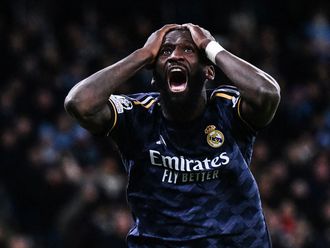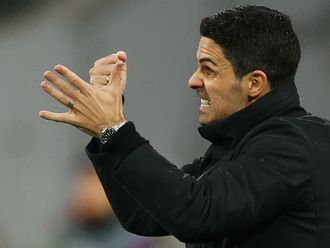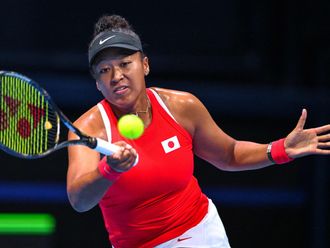_dances_with_French_DJ_and_producer_Martin_Solveig_resources1_16a0853a5d9_medium.jpg)
Paris: It was meant to be a moment of triumph. Ada Hegerberg, a 23-year-old Norwegian soccer player, had just become the first woman to win the Ballon D’Or, one of football’s most prestigious individual honours.
But for some, the historic moment was quickly spoiled when, in an onstage exchange after her acceptance speech, the French DJ Martin Solveig asked Hegerberg something that had nothing to do with her expertise: whether she knew how to twerk.
“No,” Hegerberg said, quickly dismissing the idea.
The exchange took off on social media, where critics — including some high-profile athletes — accused Solveig of sexism and assailed him for undermining a moment of professional achievement with a reference to the provocative dance move. The controversy nearly overshadowed the news that Luka Modric beat Cristiano Ronaldo and Lionel Messi for the men’s Ballon d’Or. The award for best player had been reserved for male players from its inception in 1956, until the women’s Ballon D’Or was created this year.
“This is an absolute joke,” Lindsey Horan, a United States women’s team midfielder who was one of the finalists for the women’s Ballon d’Or, tweeted in response to Solveig’s comment. She offered her support for Hegerberg: “Congrats and you do not deserve this.”
Andy Murray, the tennis star, also condemned the comment in a post on Instagram. “To everyone who thinks people are overreacting and it was just a joke. It wasn’t,” he wrote. “I’ve been involved in sport my whole life and the level of sexism is unreal.”
But even as others held up the moment as yet another example of sexism in sports, Hegerberg said she didn’t view it that way. “I wasn’t upset,” she told The Associated Press. “He came to me after the situation and he apologised, but I didn’t take it as that at all.”
She said her mind was on her achievement: “I got the Ballon d’Or.”
In a video posted on Twitter, Solveig said he was “amazed” by the comments he had seen online. “I didn’t mean to offend anyone and I didn’t know that this could be seen as such an offence, especially if you consider the sequence in total,” he said.
Still, in his post, Solveig acknowledged his comment to Hegerberg was a misstep: “This was a joke — probably a bad one.”
— New York Times News Service










